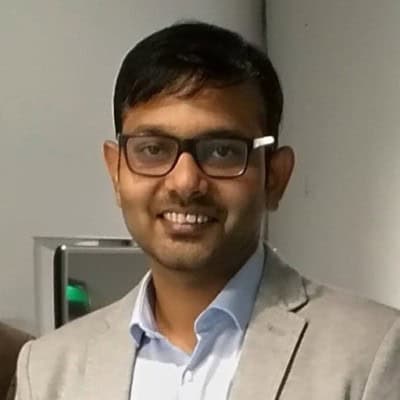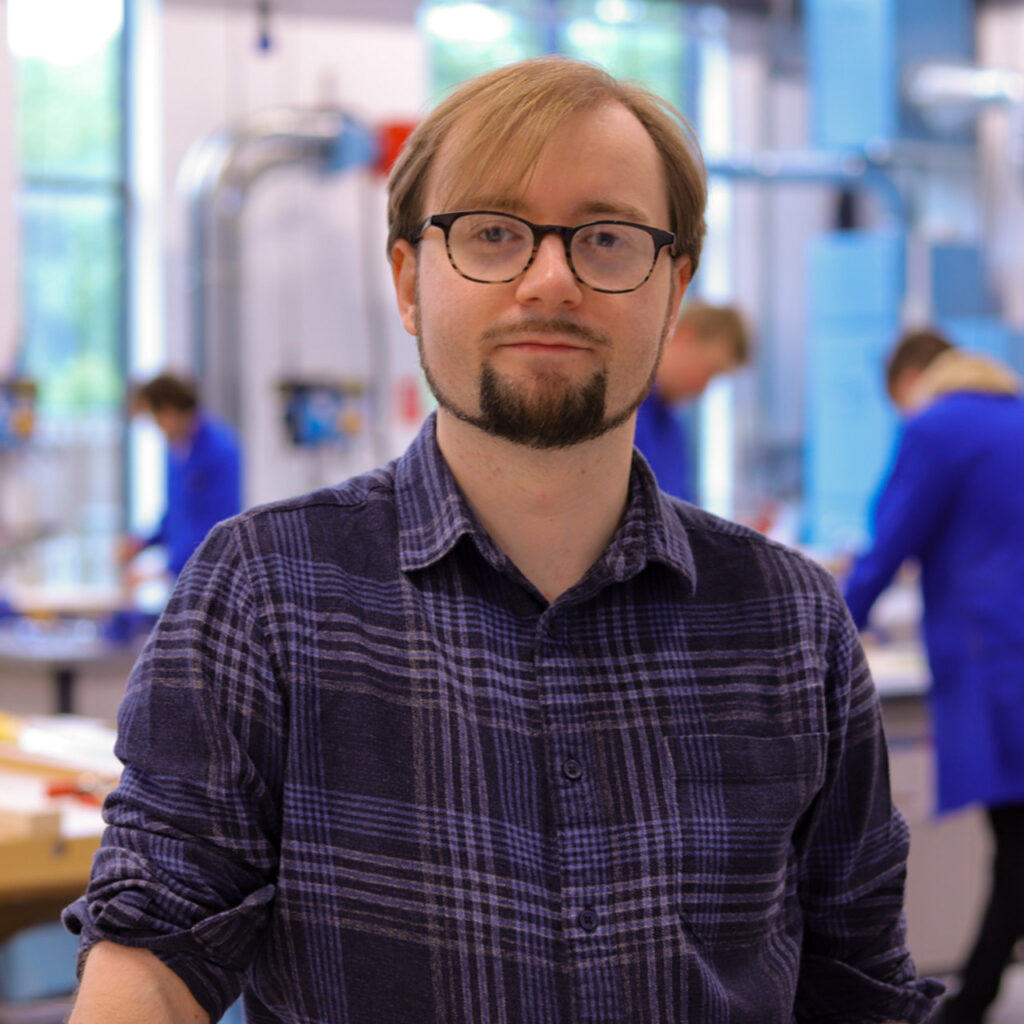Dr. Rahul Kumar
Senior Lecturer in Electrical and Electronic Engineering

About
Dr Rahul Kumar is an accomplished academic and researcher, currently appointed as a Senior Lecturer in Electrical and Electronic Engineering at the University of Chichester. With a Ph.D. in Optics from Northumbria University, he has a strong foundation in sensor technology, focusing on high-sensitivity micro/nano optical fibre sensors. Dr Kumar’s extensive teaching and research experience spans institutions in the UK, Ethiopia, China, and India.
Prior to his current role, he was a Project Coordinator for International Partnerships and a Lecturer at the University of Highlands and Islands in Perth, UK. His research has led to the development of innovative sensor technologies for environmental monitoring, with numerous publications in high-impact journals such as Scientific Reports and IEEE. Additionally, he has demonstrated expertise in pedagogical research, particularly on the influence of AI in engineering education.
Dr Kumar has been recognized for his ability to foster international collaborations and secure research funding. His commitment to high-quality teaching, student engagement, and mentoring early-career academics underscores his dedication to academic excellence and innovation in engineering education.
Professional
- Member of IET
Publications
- Kumar, “Chromogenic Approach for Oxygen Sensing Using Tapered Coreless Optical Fibre Coated with Methylene Blue”, Metrology, vol. 4, no 2: 295-303, 2024.
- Kumar, “Magnetic field sensing using tapered small core optical fibre surrounded with different concentration of magnetic fluid”, Sensors, vol. 22, no 21:8536, 2022.
- Kumar*, Y. Leng, B. Liu, et. al., “Ultrasensitive biosensor based on magnetic microspheres enhanced microfiber interferometer,” Biosensors & Bioelectronics, vol. 145, no. 111563, 2019.
- Liu, F. Ling, R Kumar, et.al., “Sub-micrometer resolution liquid level sensor based on a hollow core fiber structure”, Optics Letter, vol. 44, Issue 8, pp. 2125-2128, 2019.
- Liu, Q. Wu, W. Han, F. Wei, F. Ling, R. Kumar, et. al., “Strain independent twist sensor based on uneven platinum coated hollow core fiber structure”, Optics Express, vol. 27:14, pp. 19726-19736, 2019.
- Zhou, R. Kumar*, Q. Wu, et. al., “A simple all-fiber comb filter based on the combined effect of multimode interference and Mach-Zehnder interferometer,” Scientific reports, vol. 8, no. 1, pp. 11803, 2018. (*equal contribution)
- Kumar, W. Han, D. Liu, et. al., “Optical fibre sensors for monitoring phase transitions in phase changing materials,” Smart Materials and Structures, vol. 27, no 10, pp. 105021, 2018.
- Kumar, W. Han, D. Liu, et. al., “Singlemode-multimode-singlemode fibre structure for phase transition monitoring in phase changing materials.” Journal of Physics: Conference Series, vol. 1065, no 25, pp. 252024, 2018.
- Niu, G. Zhou, X. Miao, X. Yuan, R. Kumar, et. al., “Micro/Nanofiber with Hollow Silica Nanoparticles Thin-Film for Airborne Molecular Contaminants Real-Time Sensing,” Advances in Condensed Matter Physics 2018, vol. 11, pp. 1-6, 2018.
- Liu, R. Kumar, F. Wei, et.al., “High sensitivity optical fiber sensors for simultaneous measurement of methanol and ethanol”, Sensors and Actuators B: Chemical, vol. 271, pp. 1-8, 2018.
- Liu, R. Kumar, F. Wei, et.al., “Highly sensitive twist sensor based on partial silver coated hollow core fiber structure”, Journal of Lightwave Technology, 2018. (Q1), vol 36:17, pp. 3672-3677, 2018.
- Liu, Q. Wu, C. Mei, J. Yuan, X. Xin, A. Mallik, F. Wei, W. Han, R. Kumar et.al., “Hollow Core Fiber Based Interferometer for High Temperature (1000 °C) Measurement”, Journal of Lightwave Technology, vol. 36:9, pp. 1583-1590, 2017.
- Zhou, Q. Wu, R. Kumar*, et.al. “High sensitivity refractometer based on reflective SMF-small diameter no core fiber structure”, Sensors, vol. 17, pp. 1415, 2017. (*equal contribution).
- Li, D. Liu, R. Kumar*, et.al. “A simple optical fiber interferometer based breathing sensor,” Measurement Science and Technology, vol. 28, pp. 035105, 2017. (*equal contribution).
Research
Dr Rahul Kumar has an extensive research background focused on optics sensor technology and electrical engineering.
During his PhD, he developed several high sensitivity optical fibre sensors for measuring physical, chemical, and biological analytes, using interferometric based sensors.
His postdoctoral work at the University of Sheffield involved developing a prototype device for monitoring sediment levels in stormwater treatment setups.
Currently, he is working on developing an electronic sensor for wastewater treatment and is leading a project on the pedagogical impact of AI in engineering education.
Dr Kumar has published 14 journal articles, including works on magnetic field sensing and biosensors, in high-impact journals such as Scientific Reports and IEEE Journals.
His research is characterized by its multidisciplinary nature, involving collaborations with various international institutions.
He has also received several research funds throughout his career, such as the Northumbria R&D fund for his PhD, research funds from Nanchang Hangkong University for a collaborative project, and KE Challenge fund for another project.
PhD
Based on Dr Rahul’s extensive research experience and academic background in optics & electronic sensor technology and electrical engineering, following are the potential PhD supervision interest:
- Advanced Optical Fibre Sensors for Environmental Monitoring: Develop highly sensitive optical fibre sensors for monitoring various environmental parameters such as pollutants, water quality, and air quality.
- Quantum Sensors for Biomedical Applications: Investigate and develop quantum-enhanced optical sensors for early detection of diseases and monitoring of biological analytes.
- AI-Integrated Optical Sensing Systems for Industrial Applications: Combine AI with optical sensor technologies to create intelligent sensing systems for industrial applications, such as real-time monitoring and predictive maintenance.
- Multimode Fibre Sensors for Smart Cities: Develop and implement multimode fibre sensors for various smart city applications, including traffic monitoring, infrastructure health monitoring, and public safety.
- Optical Fibre Sensors for Renewable Energy Systems: Design and optimize optical fibre sensors for monitoring and improving the efficiency of renewable energy systems, such as solar panels and wind turbines.
- Development of Next-Generation Biochemical Sensors Using Nanomaterials: Explore the use of nanomaterials in the development of highly sensitive biochemical sensors for applications in healthcare, environmental monitoring, and food safety.


